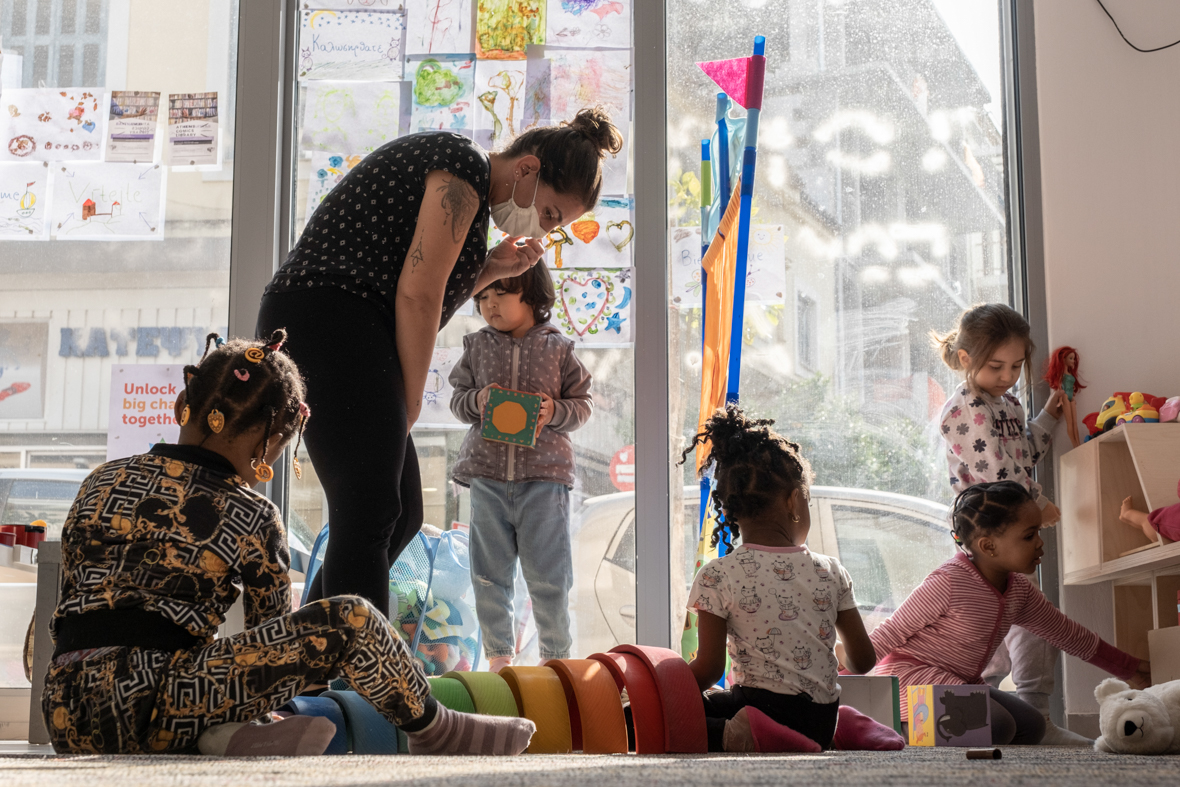
#5for5 campaign: why countries should invest in giving children best start
Childcare, Early childhood development, The Global Business Coalition for Education (GBC-Education)
Investing in early childhood development can help to boost a nation’s economy and potential for growth.
Who cares if a child gets the best start in life? Their parents, family and caregivers, of course.
But countries and businesses should care too – because investing in young children can help to boost a nation’s economy and potential for growth.
It is one of the smartest investments a country can make, helping to break the cycle of poverty and tackle inequality.
Every $1 spent on pre-school programmes can return up to $7, according to the influential Education Commission report last month. The future return comes from better productivity and lower spending on education and welfare.
On the flip side, give children a poor start in life and their country stands to lose around 20% in future productivity.
It makes sense for businesses to do their bit too.
“The future of any business is intrinsically linked with the future of every child,” said Bob Collymore, CEO of the Kenyan telecoms company Safaricom. “Our ability to provide that child with the physical, social, cognitive and emotional support will determine our ability to survive as a business and ultimately as a society.”
This is why early childhood development is high on the agenda for developing countries – and why the children’s charity Theirworld has launched its #5for5 campaign.
#5for5 highlights the importance of nutrition, health, learning, play and protection during a child’s first five years of life – when 90% of their brain is developed.
But 250 million children under five are currently prevented from reaching their full potential by poverty, insufficient nutrition and health services.
The #5for5 campaign will put pressure on world leaders to take urgent action to make sure all children – especially the poorest and most marginalised – have access to the full range of nurturing care.
The rates of return on investment featured in a recent report by the Global Business Coalition for Education called Opportunities for Impact.
It said early learning programmes have been shown in the short term to “immediately generate about $2 for every $1 dollar invested, through the sale of local goods and services”,
In the long run, there is an estimated return on investment of up to 10:1 for disadvantaged children. The report also said one study had estimated that increasing pre-school enrolment to 50% in every low- and middle-income country would result in an 8% to 18% return on investment.
If a child gets access to proper nutrition, research shows that for every $1 invested in preventing stunting among children generates up to $18 in economic returns.
In comparison, later interventions such as adult literacy programmes and job training services, show significantly lower economic returns.
“Ensuring every child’s wellbeing today is the best way of securing robust economies tomorrow,” said Dr Ngozi Okonjo-Iweala, former Nigerian finance minister and Board Chair of GAVI, the Vaccine Alliance.
“Currently, Africa and Asia lose 11% of their GDP (gross domestic product) every year because of malnutrition, a preventable condition.
“We know that investing in early years interventions across health, wellbeing and learning will allow our children to grow, learn, and earn to their full potential.
“Our economies depend on our children and we must not ignore the importance of giving them a healthy and equitable start in life.”
But in many communities there is no investment in early childhood development programmes – or where there is the quality is poor.
Comprehensive early years programmes are chronically underfunded by international donors, country governments and private philanthropy.
As a result, generations of children don’t get the best start. Yet these children are future educators, community leaders, business leaders and customers.
The success of any business or institution relies on the quality of its workforce.
Jim Kim, President of the World Bank, said: “Competing in today’s digital economy requires a workforce with well-developed brains. How do we expect employers to invest in a country if its workforce is not sufficiently developed physically and or cognitively?”
Evidence shows that investments in quality early childhood development lead to a more productive, skilled work force and yield high returns in a country’s economy.
Investment however, will do much more than bridge the skills gap – it will unlock the untapped potential of generations.
Akinwumi Adesina, President of the African Development Bank, said: “Child education should not be seen as a social development issue but rather one that shapes the path of economic growth and development.
“We therefore need to significantly increase our investments in child education, as children are the future of the world.”

More news

MyBestStart programme gives young girls the education they deserve
